Putting a hat on a daughter before going to her husband's house is an indispensable procedure in traditional Thai weddings.
Muong Le - the old name of Trung Thanh commune, has long been known as the cultural cradle of the Black Thai people. After merging administrative units, Trung Thanh commune has nearly 9,000 people, of which over 75% are Thai people. After centuries of establishing the Muong, the Thai people here still maintain their pride in their ethnic cultural identity. At the same time, they always preserve good customs and rituals, imbued with identity, including traditional wedding ceremonies.
Wishing to learn about the beauty still preserved in Thai weddings, we went to Phai village on the occasion of a traditional wedding being restored. In the peaceful mountain forest space, the sounds of khấu, khen, and gongs melodiously blended with the brilliant colors of brocade, recreating a sacred ritual imbued with highland culture. According to Ms. Ha Thi Thoan, who is knowledgeable about Thai ethnic culture in Trung Thanh commune, marriage with the Thai people always begins with the sincere feelings of the couple. When love "blossoms and bears fruit", the young man asks his parents to find a matchmaker to ask for his hand in marriage. Previously, a traditional wedding had to go through at least 6 procedures, including pay loong khoam (betrothal ceremony), xoo po (wedding request ceremony), ban doong (wedding table ceremony), clo doong (official wedding ceremony), ton po mo (bride-welcoming ceremony) and lai nha (pay khun hoi).
The engagement ceremony, the first meeting between the two families, takes place simply and intimately, without the need for a dowry. If accepted, the groom's family will invite a matchmaker (in Thai, called ung xu, pa xu) to choose an auspicious day to go to the bride's family to officially ask for the wedding. The gifts at this time cannot lack fermented wine and betel and areca nuts - symbols of attachment and sincerity. The opening sentence is often presented by the matchmaker with a symbolic meaning: "Our eldest son falls in love with your beautiful, filial daughter. If you do not mind our poor family, please let us take your daughter as our daughter-in-law. She will be like a spring of water, bringing water to the fields, working hard to plow, build houses, and take care of the family..." If they feel the sincerity, the bride's family will agree, and the two sides will discuss the wedding date, the number of guests, gifts, and specific assignments in the engagement ceremony and the official wedding.
On the wedding day, the groom's family usually consists of the matchmaker as the head of the group, the groom and groomsmen, the groom's mother and relatives and friends. Accompanying them are about 8 couples of young men and women carrying the dowry. The wedding items are carefully prepared, including a 4-handle bronze pot (mò toong xi hu), a pig, a pair of roosters and hens, a pair of wine made from leaves, bamboo tubes with sour fish and traditional gifts such as 4 rolls of brocade fabric, a traditional dress for the mother-in-law, silver bracelets for the brother and younger brother of the bride's mother, a large scarf to wrap things, dresses, bracelets for the bride...
When the wedding procession had just reached the foot of the stairs of the stilt house, the matchmaker asked to enter the house: "Is anyone home? Please say a word?/ A guest from far away has come, his heart is filled with excitement/ Host, please give me a cup of water/ To ease my longing, to warm my heart." The bride's family responded skillfully, with figurative and graceful khap words: "The distant in-laws have come to my house/ I haven't had time to say hello yet, come out to welcome them/ The swallows are chirping in the forest/ The owls are urging me to come home immediately." The khap words, half like a song, half like a poem, made the wedding atmosphere more solemn and intimate. All confusion and strangeness between the two families were gradually erased in laughter, music and warm agreement.
During the ceremony, the sound of bamboo flutes, gongs, panpipes, and flutes, along with the love songs, resounded loudly. When the sun rose, the bride was officially taken to her husband's house. Before leaving the bride's family, the groom's family received the "dowry" gifts, including 6 blankets, 6 pillows, 6 cushions, and 1 black mosquito net (pôi cho) - symbolizing the completeness of a Thai girl when she goes to her husband's house. During the exchange ceremony, the bride's family representatives asked a riddle. If the groom's family answered correctly, they would receive the gifts; if they answered incorrectly, they would be punished with a cup of wine. The men and women carrying the gifts also had their cheeks smeared with soot - a custom meant to ward off evil spirits and pray for peace.
In the middle of the traditional wooden floor, the old mother sang a farewell song, the song was full of maternal love. Not only did it remind her daughter about the duties of a daughter-in-law, the song was also a way for the mother to send her husband's family a message, hoping for tolerance for her daughter in her first uncertain days: "Although poor, the love is still strong/ The dowry is small, I don't expect silver or gold/ Please show me kindness/ Teach me to be good, study to be kind".
When stepping onto the groom's stairs, the bride must take off her hat and perform a foot washing ceremony, showing her respect and reporting to her ancestors about the new member of the family. The bride bows to the ancestral altar, while the matchmaker offers a tray of offerings including pig's head, wine and banh chung, saying that from now on, this girl is the official daughter-in-law of the family, asking for the ancestors' blessing. Next, the bride is introduced to her husband's relatives. Each relative will give her wedding gifts such as bracelets, brocade scarves, bamboo shirts, hairpins... After receiving them, the bride bows three times to express her gratitude, promising to fulfill her duties as a wife and daughter, and to maintain family happiness.
An interesting detail is that after the wedding, the bridesmaids stay with the bride for 3 days and 3 nights, while the groom has not yet been able to get close to his wife. The wedding bed must be laid by a fertile and lucky person in the family to pass on good fortune to the young couple. On the fourth day, the couple and their parents go to the bride's house to perform the ceremony. From here, the husband is officially allowed to come and go and fulfill his duties as a son-in-law.
Nowadays, along with the modern pace of life and the policy of building a new cultural life, Thai weddings in Trung Thanh commune have simplified many procedures and are shorter in duration. However, the core values of etiquette, wedding gifts, songs, ancestor worship rituals and community cohesion are still respected and preserved. Because the wedding ceremony in Thai people's life is a place where the soul of national culture converges, where love blends with human morality, family, clan and community ties. Preserving and promoting that beauty is preserving a part of the cultural quintessence of the mountainous region in the heart of Thanh today.
Article and photos: Ba Phuong
Source: https://baothanhhoa.vn/doc-dao-dam-cuoi-nguoi-thai-xu-thanh-259329.htm


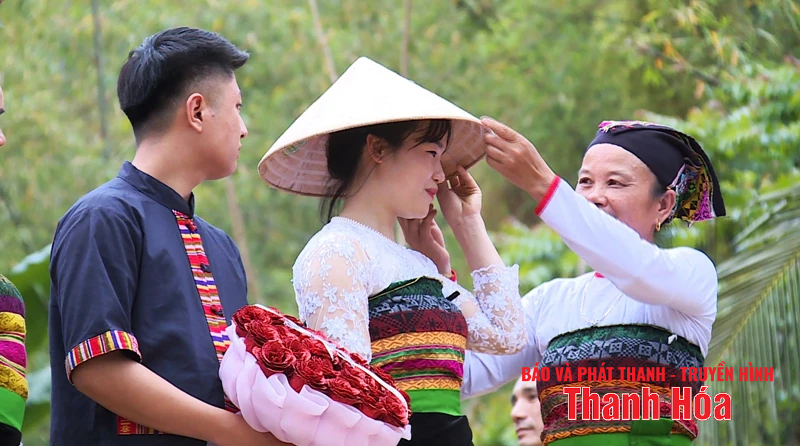








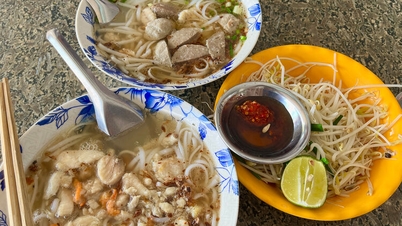



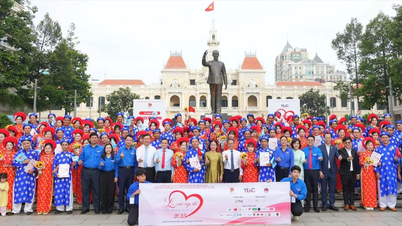

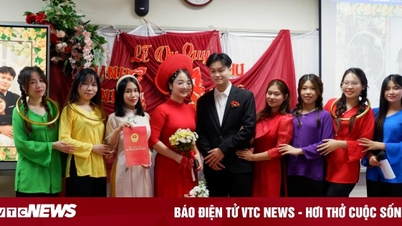



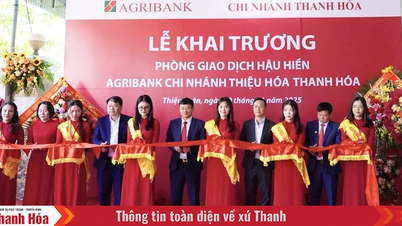
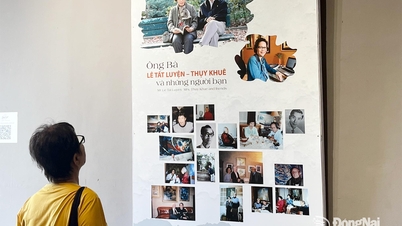



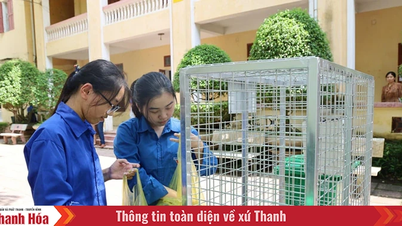






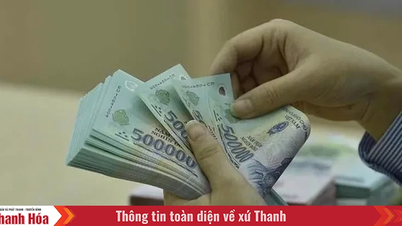
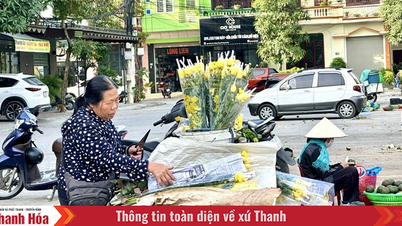

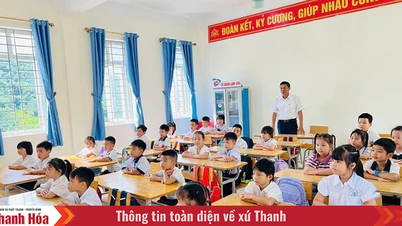
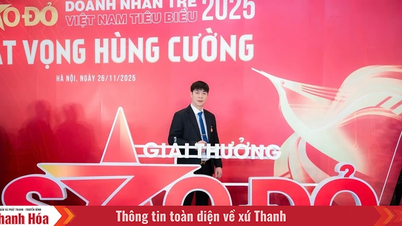





































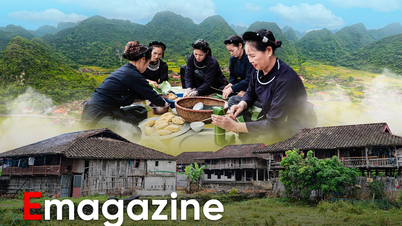


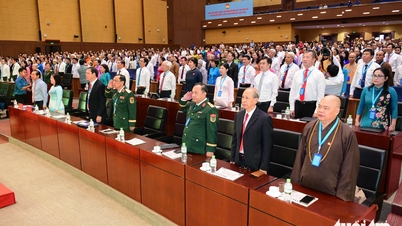












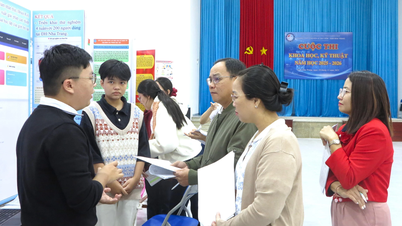
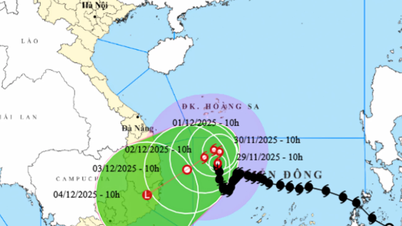
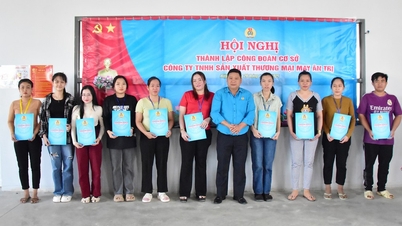


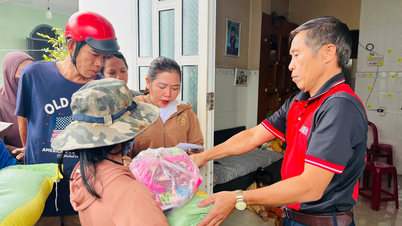









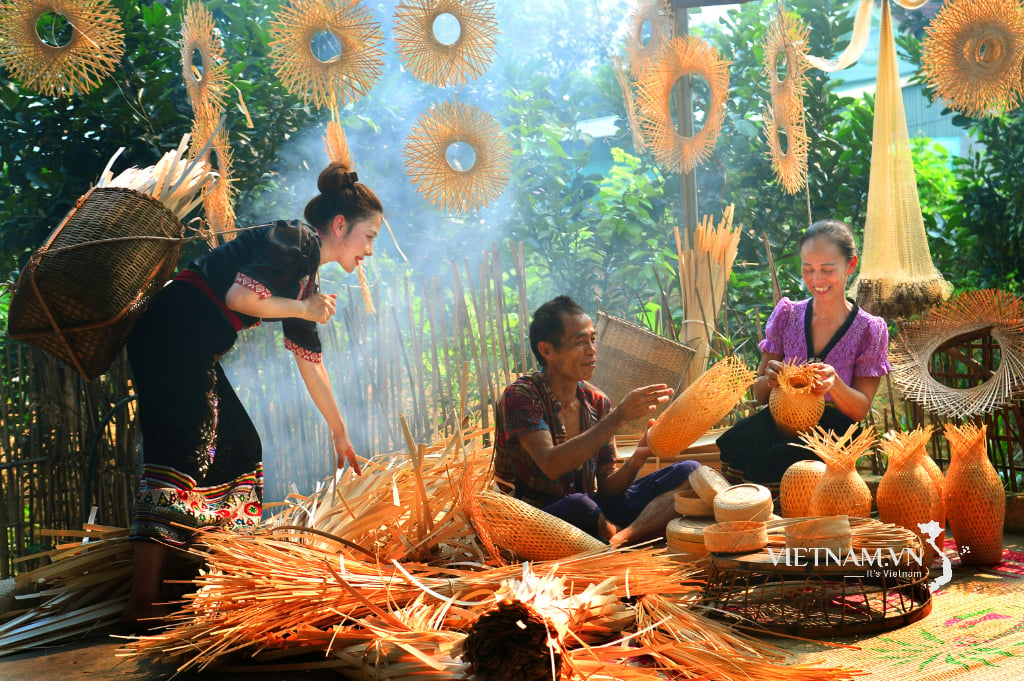
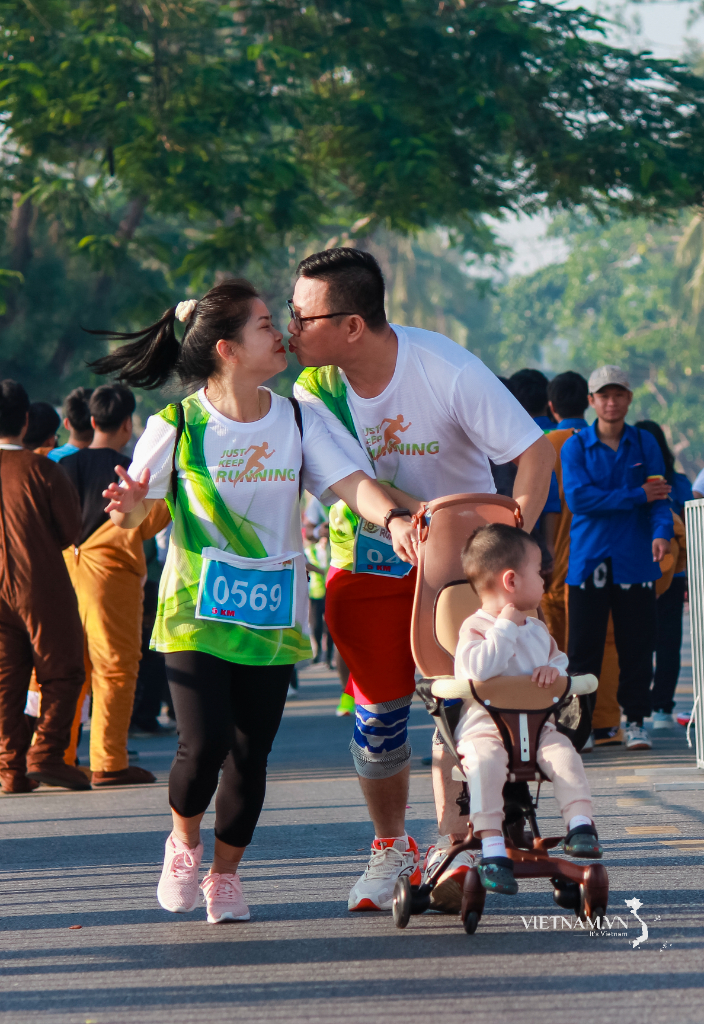


Comment (0)